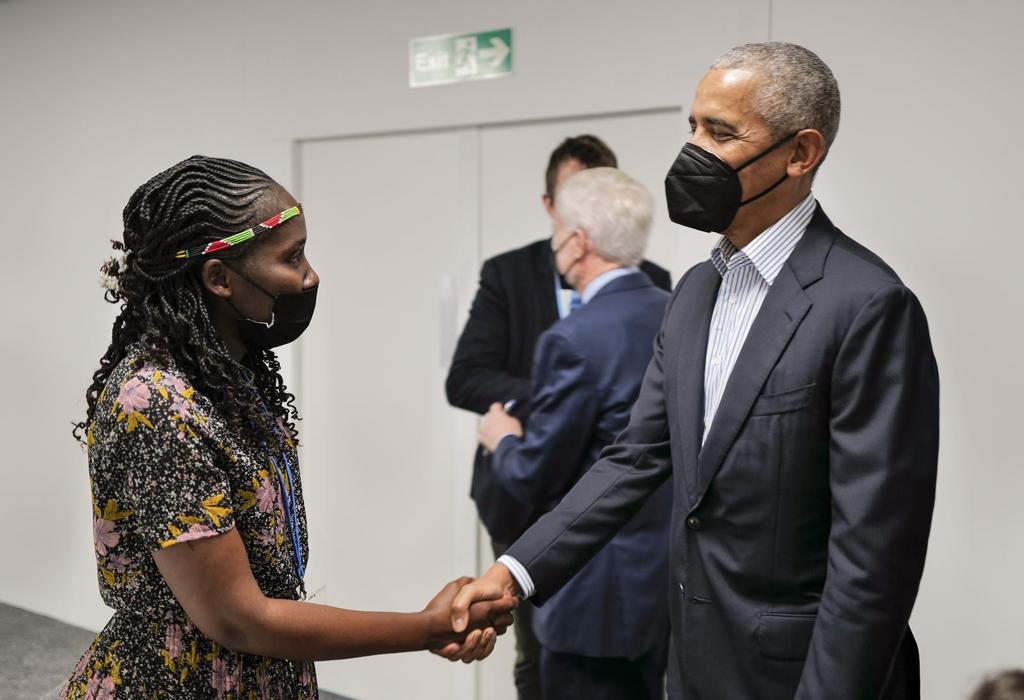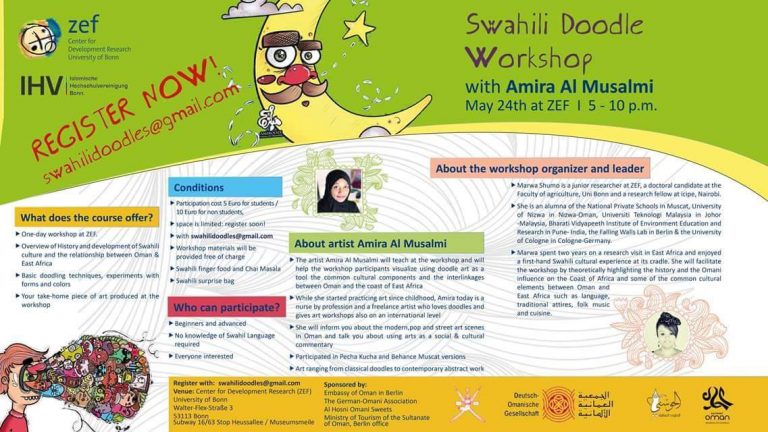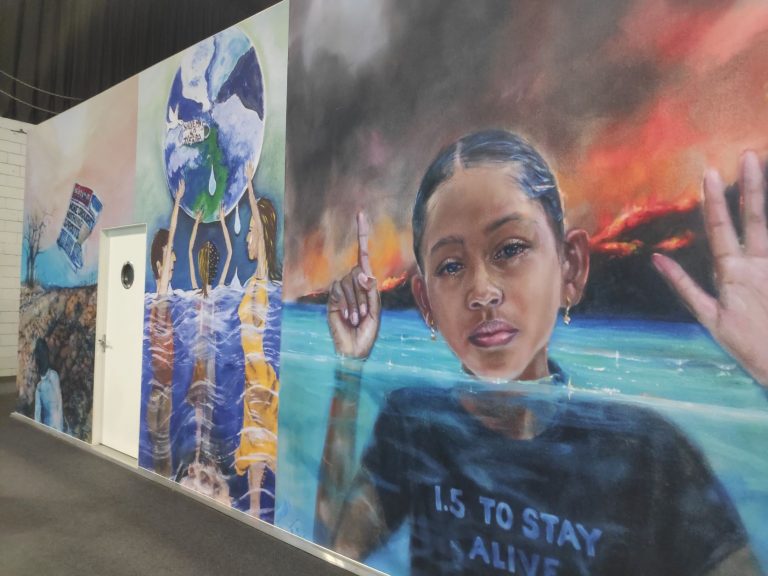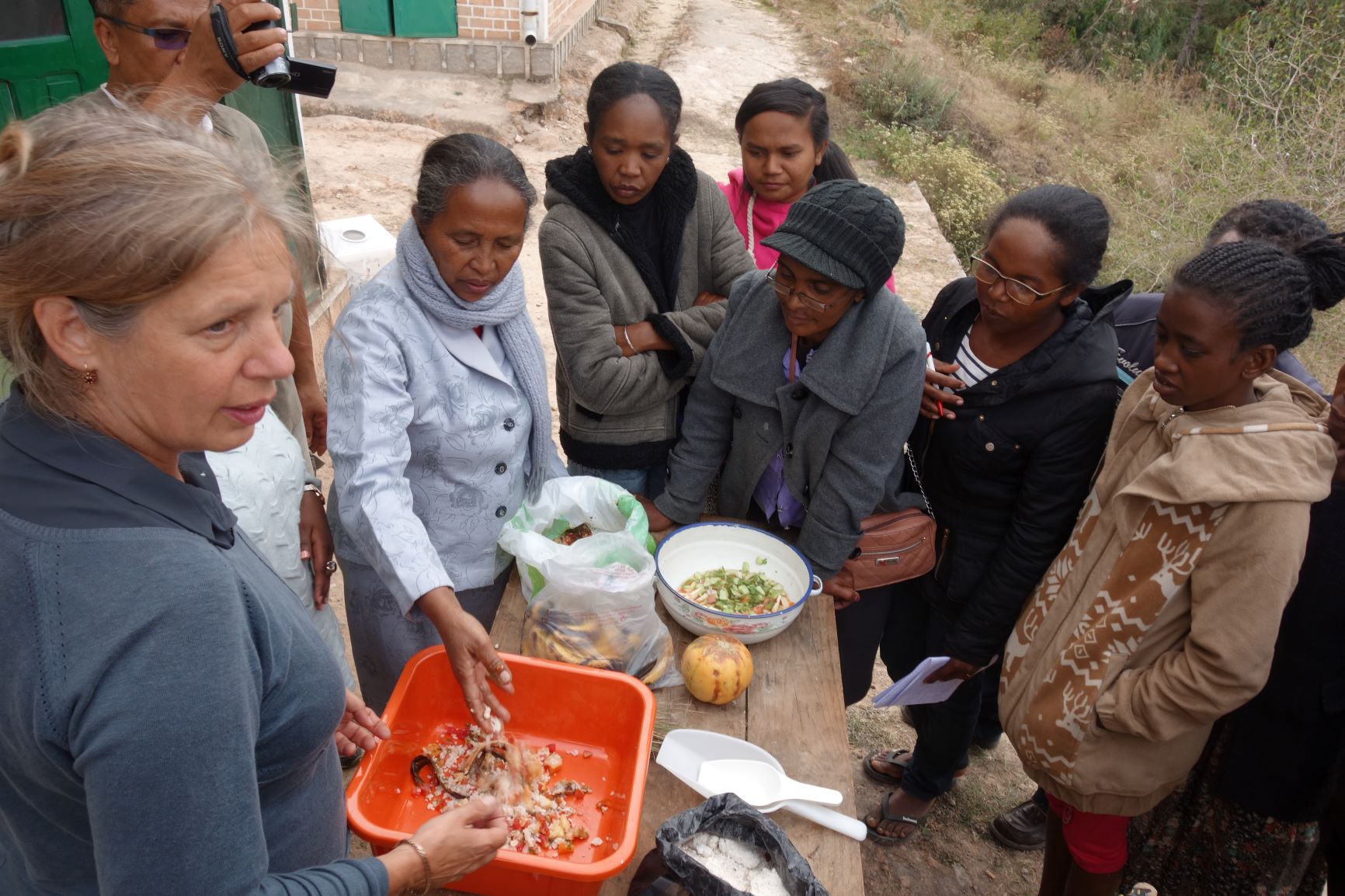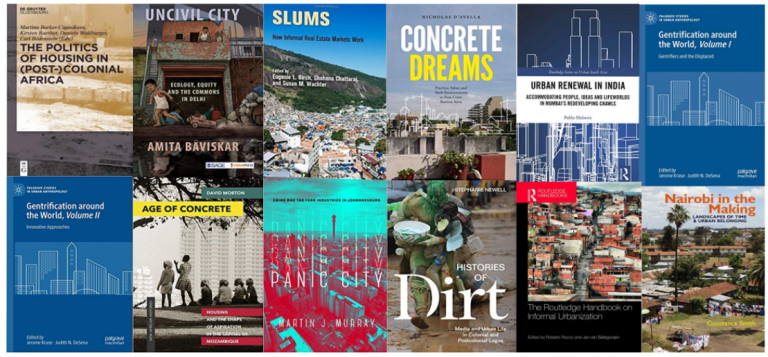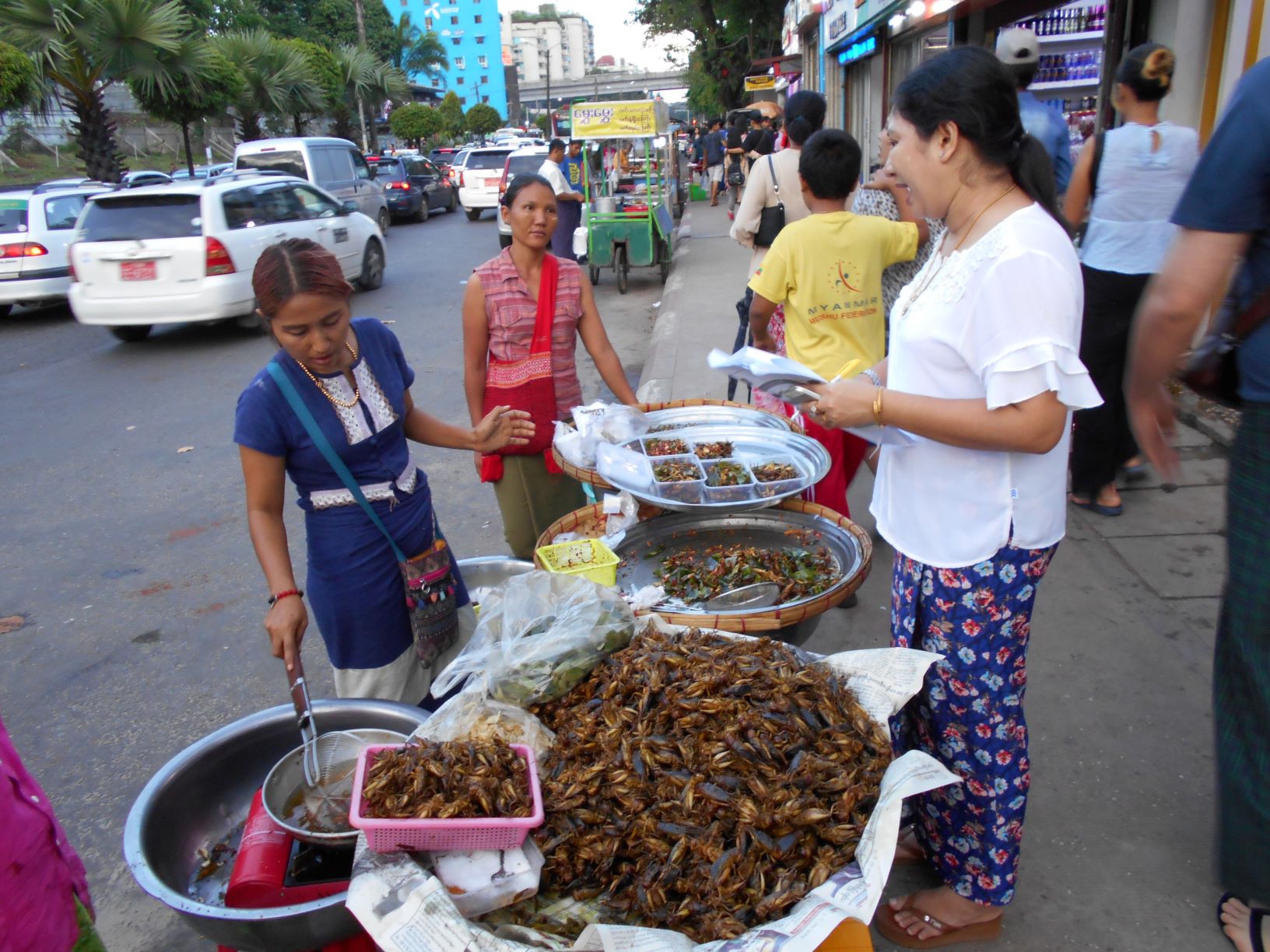Darkest before dawn: Reflections on my COP 26 experience
In this blog post, ZEF- and Right Livelihood College (RLC) junior researcher Irene Awino Ojuok from Kenya relates about her impressions, experiences and insights of her participation in the COP 26 in Glasgow, United Kingdom (October 31-November 13, 2021). She was invited by the Global EverGreening Alliance (GEA) whom she represented as an Ambassador. Irene is also featured in a video clip of her sponsor Global EverGreening Alliance (you can watch it on Facebook here).
Background check
Climate change is one of the biggest threats facing humankind today and in this century. Every year countries that are signatories to the United Nations Framework Convention on Climate Change (UNFCCC) meet in the Conference of Parties (COP). There are also other COPs for other major UN treaties, such as the UN Convention on Biological Diversity, which just held the first part of its COP 15 virtually on October 11-15, 2021. This year’s COP of the UNFCCC was no. 26 and hosted by/held in Glasgow (United Kingdom).
Getting to the COP26 in Glasgow: no (easy) access for all
I had the privilege to participate in a COP for the first time in my life. I was fortunate that I received my COVID vaccine earlier in Bonn and that my country Kenya was not on the red list for the UK. Many registered delegates, especially from the less-developed countries, who wished to attend COP 26 were not able to attend because they were not fully vaccinated yet or because of other barriers (more about that below). However, my excitement was quickly marred by challenges to get a visa for the UK and I only managed to arrive in Glasgow on November 7, 2021, instead of my scheduled arrival on November 1, 2021. I am eternally grateful to the GEA and everyone who pushed so hard to ensure I get to Glasgow. Reflecting on the whole process and on the frustrations I endured with satisfying all the requirements for attending COP 26, I became even more convinced that representatives from so-called local communities still have an unequal chance of participating in this kind of events. Thus, their voices continue to be kept further away from decisions that determine their destinies.
First meetings: Virtually only
The UNFCCC COP meetings are focused on revisiting promises, making pledges and developing action plans to help end the climate emergency. The inability to keep temperatures below 1.5 degrees Celsius, together with the Covid-19 pandemic, continues to threaten humanity. Moreover, the global health and climate crises have revealed and deepened the vulnerabilities of those hit most by climate change disasters, hence, increasing global pressure for urgent action. Recent COP meetings have been criticized to exclude interests of the most vulnerable and making empty promises with weak commitments, especially from developed countries, in financing developing countries to adapt to climate change.
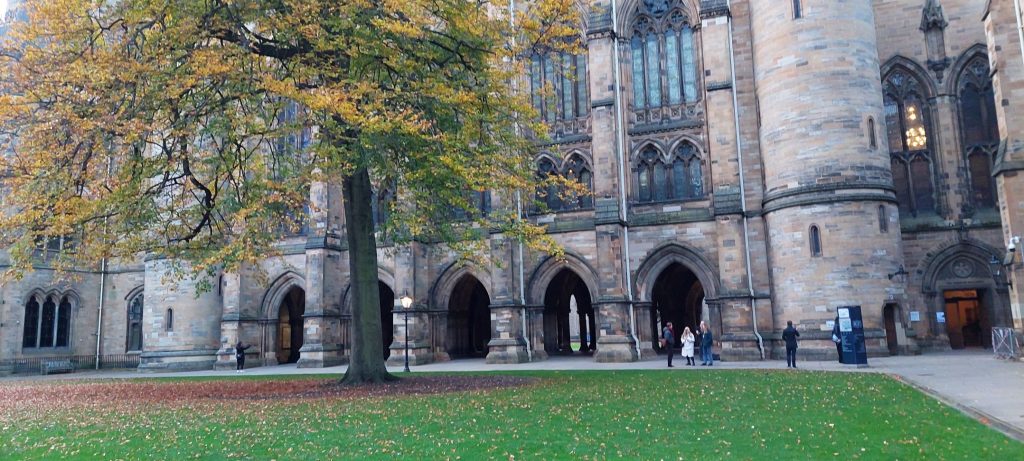
This explains why this year’s COP 26 in Glasgow had about 40,000 registered delegates, the highest number of participants in the history of all COP meetings. COP 26 was attended by powerful and influential leaders from governments, research, private sector, civil society, grassroots organizations, climate change activists and champions, media, ordinary citizens, victims of climate disasters and religious leaders from around the world. Physical participation in Glasgow was, however, barred by a myriad of challenges: visa approvals, Covid-related travel restrictions, and high costs for travel and accommodation during the two week-long conference. All these factors excluded participants from poorer countries whose voices are crucial in the negotiations. After all, their contribution to the global carbon emissions is the lowest of all regions in the world, but they are impacted most by climate change.
On the stage with Tony Rinaudo and Volker Schlöndorff
The first event I joined online before my physical arrival. It was a panel discussion on November 5 at the Global Landscapes Forum (GLF), a parallel conference to the COP discussing integrated land issues. In the panel, entitled “The Forest maker meets the Film maker”, I shared a platform with Australian Right Livelihood Laureate Tony Rinaudo, also dubbed ‘Forest maker’, and Oscar award-winning filmmaker Volker Schlöndorff. We deliberated on the potential of Farmer Managed Natural Regeneration (FMNR) in restoring degraded landscapes in Africa. Volker Schlöndorff introduced his film on Tony Rinaudo’s work, showing how unleashing the forest underground through FMNR can tackle land degradation. Tony Rinaudo then shared his inspiration and drive in spreading FMNR while I shed light on the local practicability of the approach drawing on my 10 years of experiences in Kenya. I could directly build on my PhD research at RLC and ZEF in which I explore FMNR potentials and challenges in rehabilitating degraded lands for smallholder farmers in Baringo County, Kenya. You can watch a video clip of this meeting on Youtube here.
Marrakech Partnership Land Use event and TED talk
On November 6, I participated online in the Land Use Action Event hosted by the Marrakech Partnership where I made an announcement by giving a TED Talk (see video here) on the need to upscale restoration efforts at global and regional levels while emphasizing on human-centered and community-led efforts with effective governance systems. On behalf of the GEA, I also announced that the Climate Asset Management will allocate funds of 150 million USD to gear up community-driven land restoration in Kenya, Tanzania, Ethiopia, Uganda, Malawi and Zambia. This project will contribute to the restoration of 2 million ha farm land and therewith supporting and empowering the lives and livelihoods of about 2 million farming families across the six countries. This, alongside other African initiatives like the Great Green Wall, will significantly contribute to the realization of the Africa Forest Landscape Restoration Initiative (AFR100) targets.
Finally made it: at the COP and next events: Global Landscape Forum and Resilience Film Gala
That same evening I flew from Nairobi to Glasgow, arriving in the morning of November 7. Touching down at Glasgow airport was such a relief and joy. After constant struggles, I finally made it to Scotland for my first ever COP event.
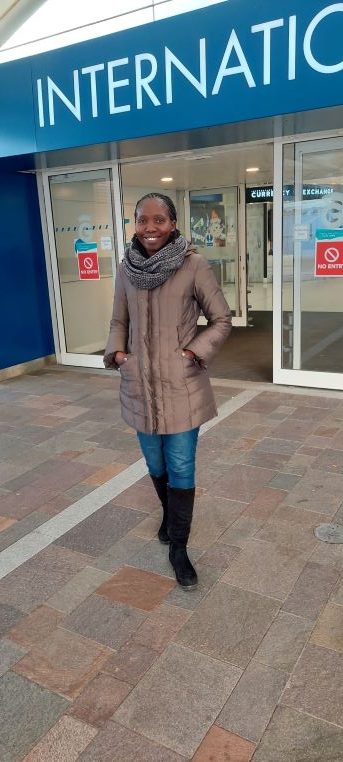
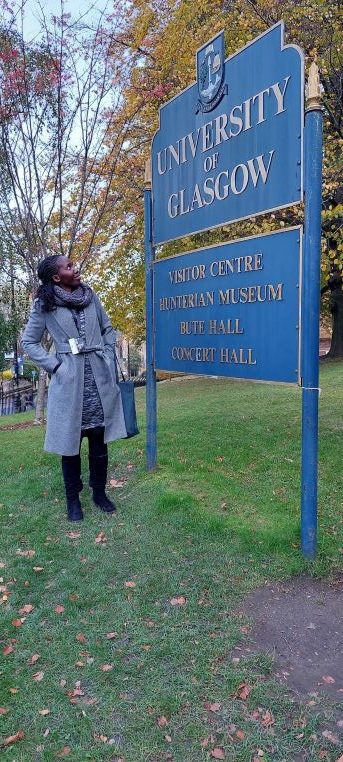
I quickly settled in after the arrival and rushed for a Global Landscape Forum (GLF) panel discussion with a live audience at Glasgow University. The discussion revolved around the role of partners in financing restoration towards achieving AFR100 targets. Climate Asset Management representatives, AFR100 focal point and GEA deliberated on how private sector partnerships, climate finance, governments and community can work together to transition pledges to practical actions that empower grassroots initiatives. Conversations around the practicability and effectiveness of the carbon credits model, particularly for smallholders as an incentive for restoration, ignited a lot of interest from the audience. You can watch a video of the event here.
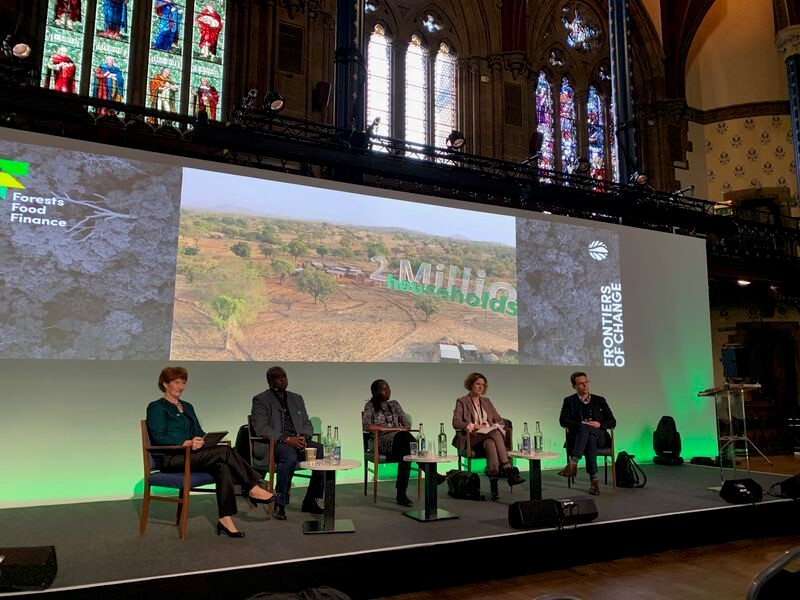
Later, I joined the ‘Race to Resilience Climate Champions and Activists’ at the Resilience Film Gala, hosted by Glasgow Caledonian University, where two climate change films were launched and I got to network and hear of great resilience work happening around the world.
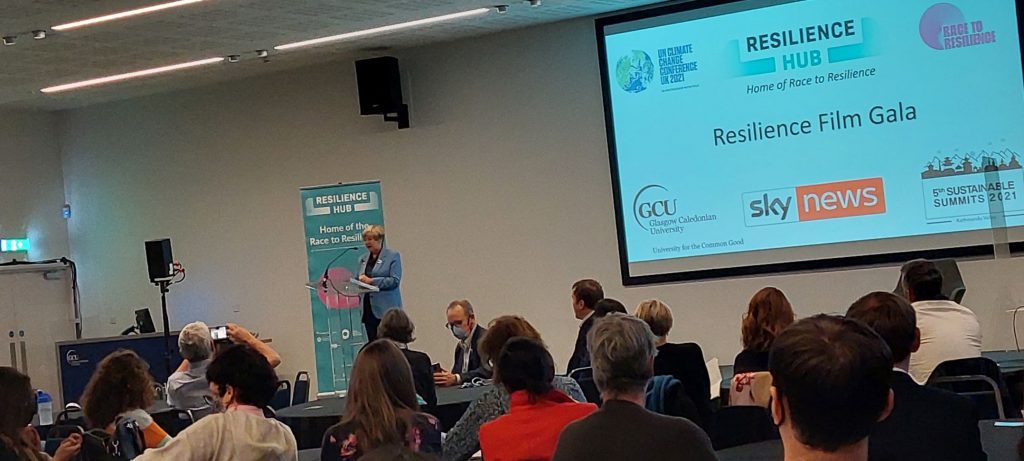
Blue zone: the place to be
On November 8, I had the opportunity to physically participate in main COP events in the Blue zone where thousands of people thronged in endless queues to get in. I was interviewed by Time Radio on the state of the climate change crisis in Kenya and how it is affecting communities. I could draw on my PhD research and highlighted key recurrent calamities like floods, drought, or locust invasions. Drought was in fact an ongoing nationally declared disaster in Kenya during COP 26 with over 2.1 million people directly affected in the arid and semi-arid lands. Rising temperatures are contributing to more mosquitos in Nairobi, increasing future malaria cases. I also had the chance to walk around and visit many of the pavilions trying to get glimpses of new developments key to addressing the climate emergencies, while at the same time meeting people from all over the world. Some were dressed in their traditional and national regalia sharing a common platform with high-level leaders.
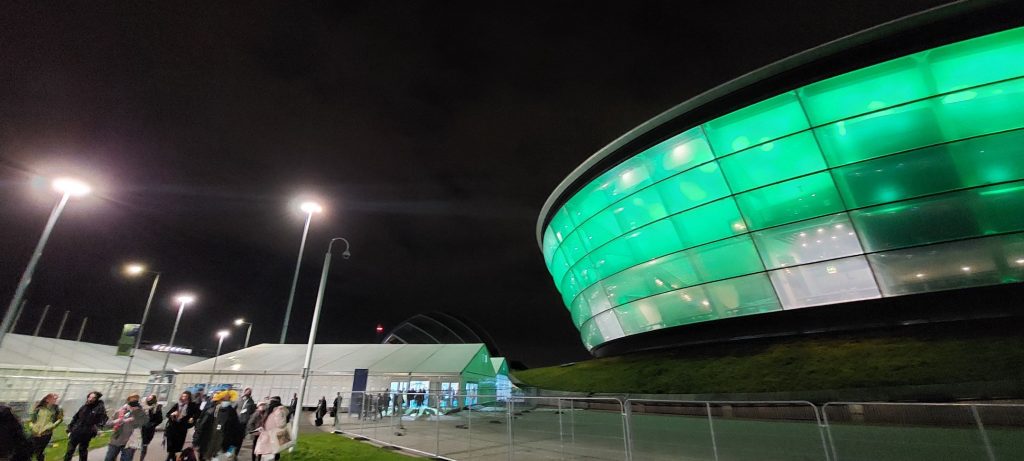
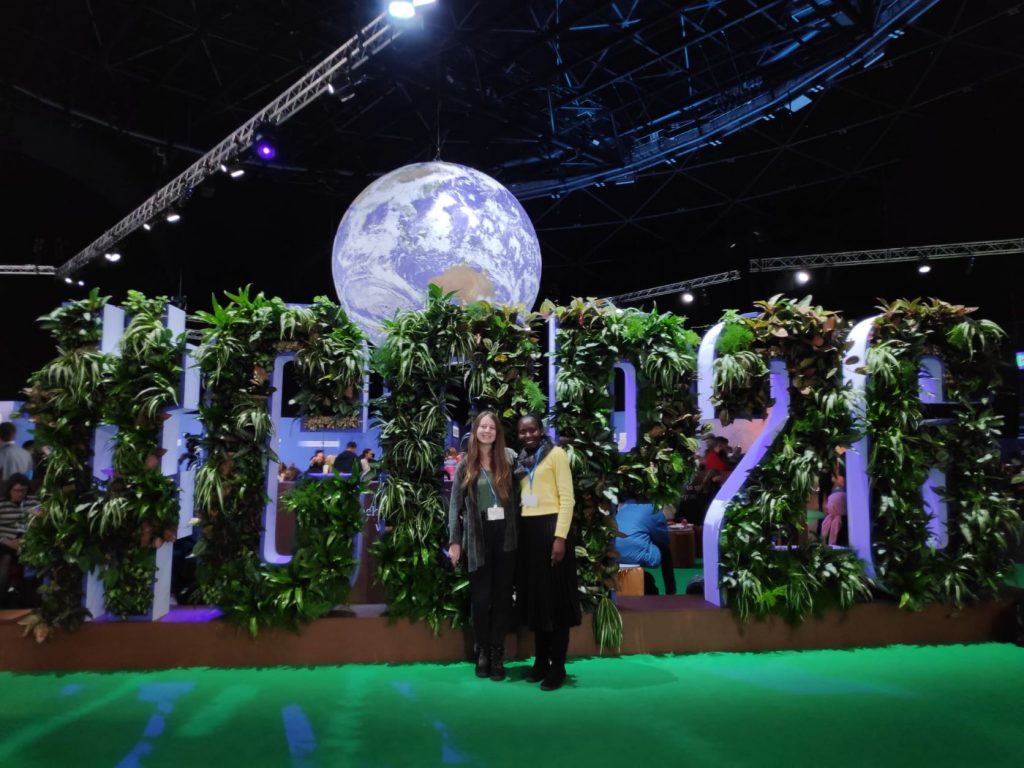
Meeting Rachel Ruto and Wanjira Maathai
Among the key people I was able to meet and interact with were two power women from my home country Kenya: First I met her Excellency Rachel Ruto, who is the Second Lady of Kenya (wife of the Deputy President). She gave a talk on gender mainstreaming in climate change and the need for the efforts of women to be fairly valued and rewarded.
Then I also had a chat with Wanjira Maathai, daughter of Professor Wangari Maathai (who received the Right Livelihood Award in 1984 and the Nobel Prize in 2004 as the first African woman ever), who has been my hero since ever. Wanjira Maathai has followed in the footsteps of her mother and has become a renowned environment activist in Kenya and throughout Africa. She is also chair of the Greenbelt Movement and Vice President and Regional Director for Africa at World Resources Institute.
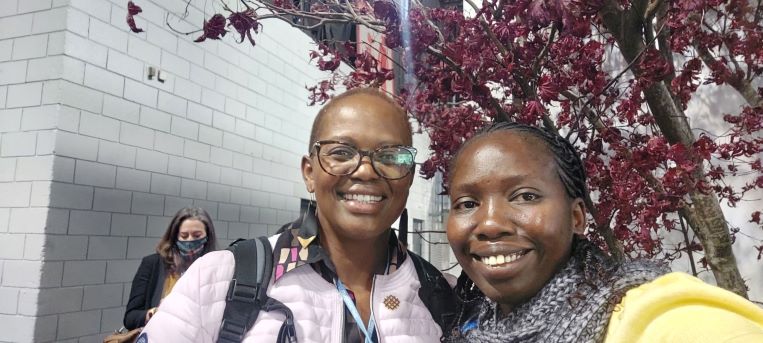
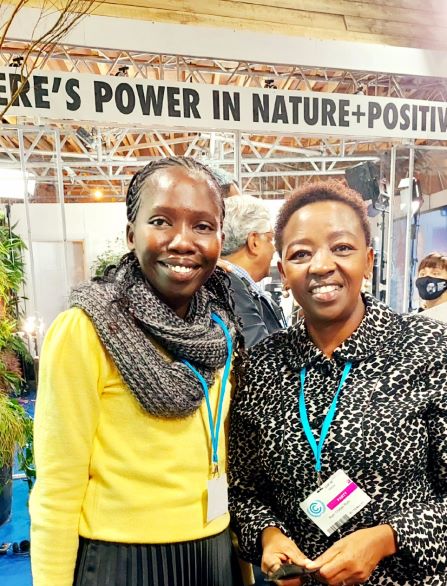
Meeting Barack Obama: a lifetime opportunity!
November 8, I was invited to participate in a private round table meeting with former United States President Barack Obama. That was amazing! I was in disbelief at first, yet, without thinking twice, I confirmed my presence and participation. I was even scared of telling anyone because I thought they would think I am crazy. After a short conversation with the GEA leadership, I decided to go home and get a good night’s sleep so the next morning I would wake up early to prepare for the big day with President Barack Obama.
My last day at the COP, November 9, marked the climax of engagements and events and will remain a historic moment in my life. I started the day with an interview with Sky News TV on the adaptation and mitigation to climate change in Kenya and the need to mainstream gender issues. Afterwards, I joined the private round table with President Barack Obama together with about 10 global climate champions drawn from the Race to Resilience hub. In the rich discussions, we shared our experiences on practical interventions on the local levels, including both successful cases that need scaling up and cases of failures. In his parting shot, President Barack Obama challenged us to seek simple ways to solve the complex challenges we face in our time, reiterating that these options may look stupid but could be the best way out of this climate emergency. He also urged us to stay committed and consistent in our pursuit for a better world for all of us.
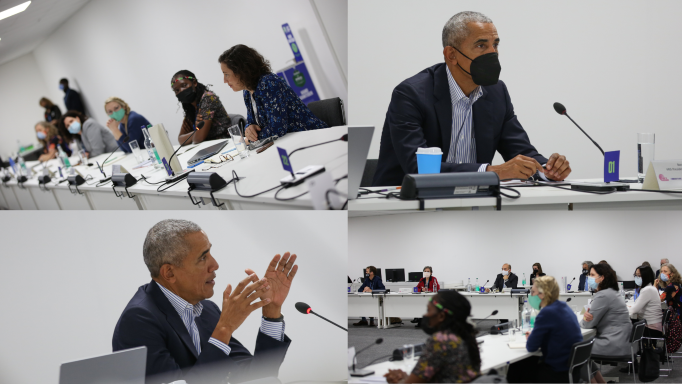
It was extremely overwhelming and humbling to shake hands with the President as I introduced myself to him and hearing him respond in Swahili as well as our both mother tongue “Luo”. This unique moment made me feel really nice and proud to be Kenyan. I have always been inspired by President Barack Obama, but in the least of my expectations, I had never imagined I could even come this close to him. For the few times he came to Kenya, I never had an opportunity even to be in the crowd around him. Looking back, I admit that it is the simple things that solve complex issues. My passion in NGO work and research on Farmer Managed Natural Regeneration – with and for local communities – finally gave me the lifetime opportunity to meet one of the greatest leaders of our time.
Africa Day: Sharing African climate-related concerns
I later joined the Africa Day event where I met African leaders including my Governor of Kisumu County, Professor Anyang Nyongo, who gave a powerful speech on what Africa should do as it bargains for more resources to address climate adaptation challenges. The discussions in the event majored around disappointments from the negotiations following the low commitments by developed countries to commit financing for loss and damage.
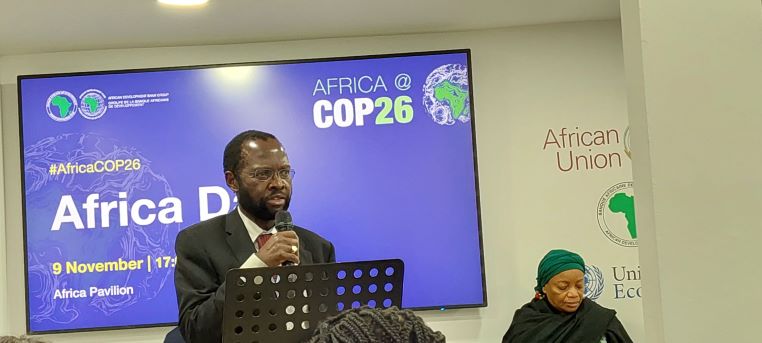
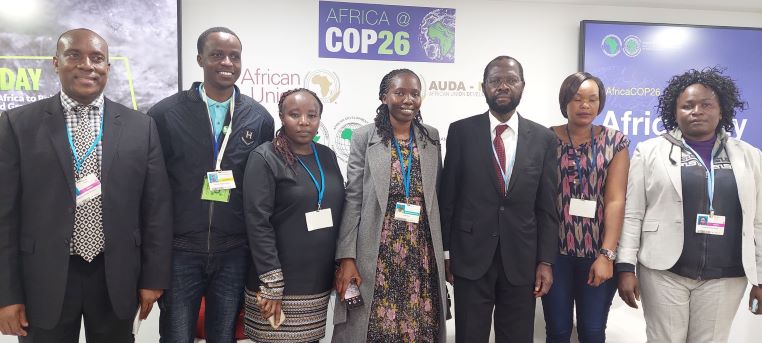
A concluding personal note
My experience at the COP 26 began with serious challenges but ended with excellent opportunities to learn and interact with great people from all over the world. I saw humanity unite for a course to save the planet, my only hope is that everyone plays his or her role to make a difference while caring for one another.
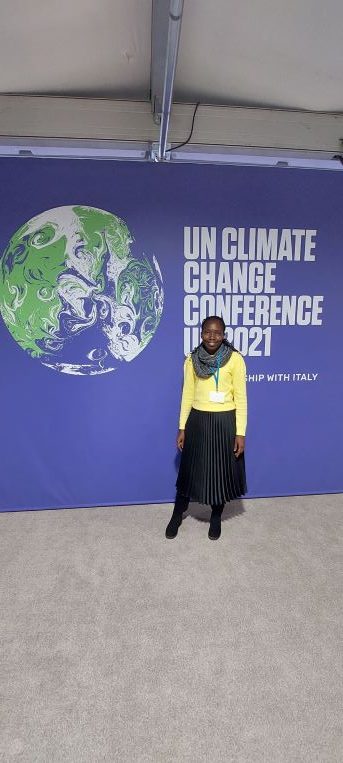
Irene Awino Ojuok conducts her doctoral research at ZEF. Her research is supported and funded by the Right Livelihood College (RLC) and the German Academic Exchange Service (DAAD).

